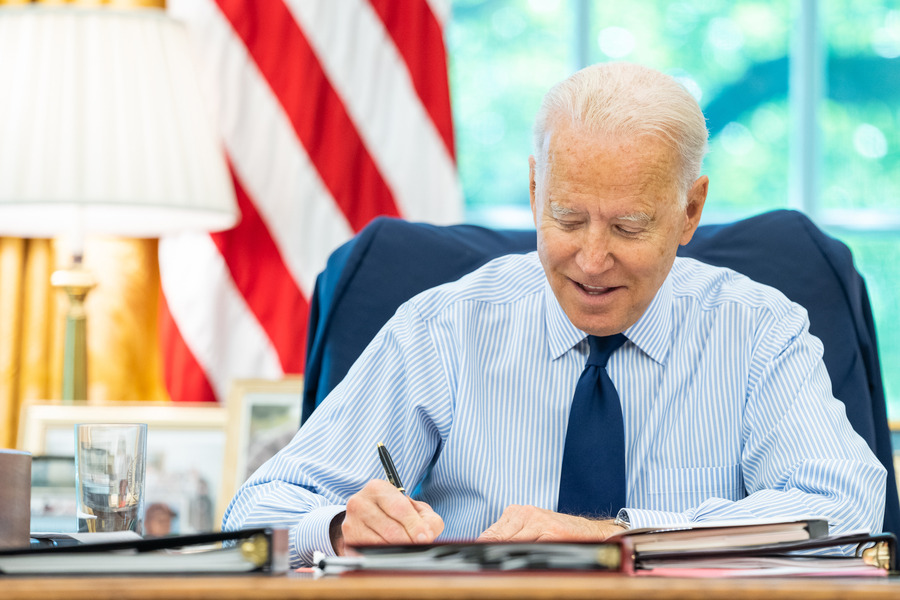Military Commissions Charges Sworn Against Majid Khan
The Defense Department today announced that military commission charges have been sworn against Majid Khan, a Pakistani detainee at Guantanamo who used to live in the United States:
DOD Announces Charges Sworn Against Detainee Majid Shoukat Khan
Published by The Lawfare Institute
in Cooperation With

The Defense Department today announced that military commission charges have been sworn against Majid Khan, a Pakistani detainee at Guantanamo who used to live in the United States:
DOD Announces Charges Sworn Against Detainee Majid Shoukat Khan
The Defense Department announced today that military commission charges have been sworn against Majid Shoukat Khan, a Pakistani national who lived in the United States from 1996 to early 2002 before returning to Pakistan. The charges allege that Khan joined with members of al Qaeda in Pakistan to plan and prepare attacks against diverse targets in the United States, Indonesia, and elsewhere after Sept. 11, 2001. Specifically, they allege that Khan:
- Used a fraudulently obtained travel document to travel from his residence in Baltimore, Md., to Karachi, Pakistan, in January of 2002;
- Conspired with Khalid Sheikh Mohammed regarding a plot to blow-up underground gasoline storage tanks at gas stations in the United States and other domestic plots;
- At Khalid Sheikh Mohammed’s direction, recorded a “martyr video,” donned an explosive vest, and sat in a mosque waiting for Pakistani President Pervez Musharraf to arrive so that Khan could assassinate him, an attempt that was foiled when Musharraf never arrived;
- Traveled in March of 2002 from Karachi to Baltimore, where he performed tasks for al Qaeda and Khalid Sheikh Mohammed, including purchasing a laptop computer for al Qaeda and contacting a military recruiter to obtain materials regarding the United States military, which he intended to give to Khalid Sheikh Mohammed;
- Upon returning to Pakistan in August 2002, worked directly for Khalid Sheikh Mohammed, Ali Abdul al-Aziz Ali, and other al Qaeda associates, all of whom were evading capture by United States and Pakistani authorities;
- At the direction of Khalid Sheikh Mohammed and Ali Abdul al-Aziz Ali, traveled with his wife in December of 2002 from Pakistan to Bangkok, Thailand, where he evaded notice by posing as a tourist;
Based on these allegations and others outlined in the charge sheet, Khan is charged with conspiracy, murder and attempted murder in violation of the law of war, providing material support for terrorism, and spying. In accordance with the Military Commissions Act of 2009, Chief Prosecutor Mark Martins has forwarded the sworn charges to Convening Authority Bruce MacDonald with a recommendation that the charges be referred to military commission for trial. By separate action, Martins today also detailed Courtney Sullivan of the Justice Department as trial counsel in the case and Army Lt. Col. Michael Hosang and Navy Lt. Nathaniel Gross as assistant trial counsel. Martins has not recommended that any of the charges be referred to a military commission empowered to adjudge the death penalty, and therefore the maximum allowable penalty for the charged offenses is life imprisonment. The convening authority will make an independent determination as to whether to refer some, all, or none of the charges to trial by military commission. If the convening authority decides to refer the case to trial, he will designate the commission panel members who function as jurors. The chief trial judge of the Military Commissions Trial Judiciary would also detail a military judge to the case. The charges are only allegations that the accused has committed offenses under the Military Commissions Act, and the accused is presumed innocent unless proven guilty beyond a reasonable doubt.
- While in Bangkok, delivered $50,000 in al Qaeda funds to a southeast Asia-based al Qaeda affiliate, which in turn delivered the money to the allied terrorist group Jemaah Islamiyah, which used the funding to detonate a bomb in August of 2003 at the J.W. Marriott Hotel in Jakarta, Indonesia, killing eleven people, wounding at least eighty-one others, and severely damaging the hotel.
Benjamin Wittes is editor in chief of Lawfare and a Senior Fellow in Governance Studies at the Brookings Institution. He is the author of several books.





